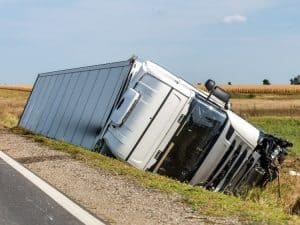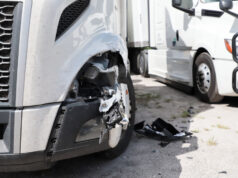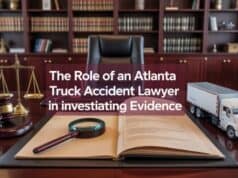You’re backing out of your driveway when you notice a small puddle near one of your wheels. It’s not oil, and it’s not water. If it’s brake fluid, this could be a serious issue, and one that even a Nashville truck accident lawyer would warn against ignoring.
What Is Brake Fluid And Why Is It Important?
Brake fluid is the lifeblood of your braking system. It transfers the pressure from your foot on the pedal to the brake components at your wheels. Without it, your brakes can’t function properly.
Unlike oil, brake fluid doesn’t lubricate; it enables stopping power. When you push the pedal, fluid compresses and sends force to the calipers or wheel cylinders. This action causes your car to slow down or come to a stop.
If there’s a leak, that pressure weakens. And when pressure weakens, so does your ability to stop the vehicle safely.
How To Identify A Brake Fluid Leak
Brake fluid typically has a light yellow or amber color when new, and it darkens as it ages. It’s thinner than motor oil and often feels slippery to the touch. If you notice it near your wheels, that’s a red flag.
You may notice a small puddle or a wet spot behind one of your tires. Check to see if it’s coming from the inside of the wheel, where the brake lines and calipers are located.
A spongy or soft brake pedal can also be a symptom. If the pedal goes farther to the floor than usual, air or fluid loss may be to blame.
Common Causes Of Brake Fluid Leaks Near Wheels
One of the most common causes is a worn brake caliper or wheel cylinder. These parts can wear down over time and start to leak. When seals break down, brake fluid escapes under pressure.
Another possible source is a cracked or damaged brake hose. These flexible lines connect the main brake line to the wheels and can crack from heat, age, or debris.
In some cases, the master cylinder may be leaking, allowing the fluid to travel through the system and eventually pool near a wheel. Regardless of the cause, any fluid loss is a serious matter.
Why You Should Never Ignore It
A brake fluid leak isn’t just inconvenient; it’s dangerous. Your braking power depends on the system being sealed and pressurized. Even a small leak can make a big difference.
Losing fluid reduces the hydraulic pressure in your brake lines. When that happens, your car takes longer to stop or might not stop at all. That’s a risk you don’t want to take at any speed.
Brake failure is a leading cause of accidents, particularly in emergency situations. Ignoring a leak could turn a minor repair into a major accident.
What Can Happen If You Keep Driving?
If you continue driving with a fluid leak, the problem will get worse. The system could fail while you’re on the road. That’s not just a safety issue; it’s also a potential legal one.
You could lose braking on one or more wheels, especially under hard braking or on wet roads. This loss of control increases your chance of a crash.
In some cases, leaking brake fluid can also damage other parts. It can eat through paint, rubber, and even metal, adding extra cost to your repairs.
How To Fix It
The fix depends on where the leak is coming from. If it’s a brake caliper, you may need to replace or rebuild it. If it’s a hose or line, those can usually be swapped out quickly.
Regardless of the source, it’s essential to address it promptly. Most shops can identify the issue during a quick inspection and provide you with a clear plan for repair.
Don’t rely on topping off the fluid as a solution. That’s a temporary fix and doesn’t solve the underlying problem.
Prevention Tips For The Future
Routine brake inspections can catch problems early. Have your brakes checked at least once a year or more often if you drive in heavy traffic or mountainous areas.
Pay attention to how your brake pedal feels. If it changes suddenly or feels mushy, have it examined right away.
Also, check your driveway or garage for signs of leaks. Early detection can save you money and your life.
Conclusion
Brake fluid leaks near the wheels are never something to brush off. They signal a problem that could put you and others at serious risk. Even a Nashville truck accident lawyer would tell you — when it comes to brakes, don’t wait.







